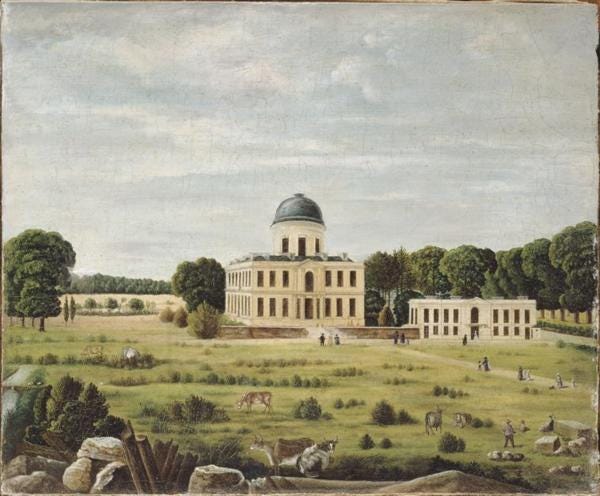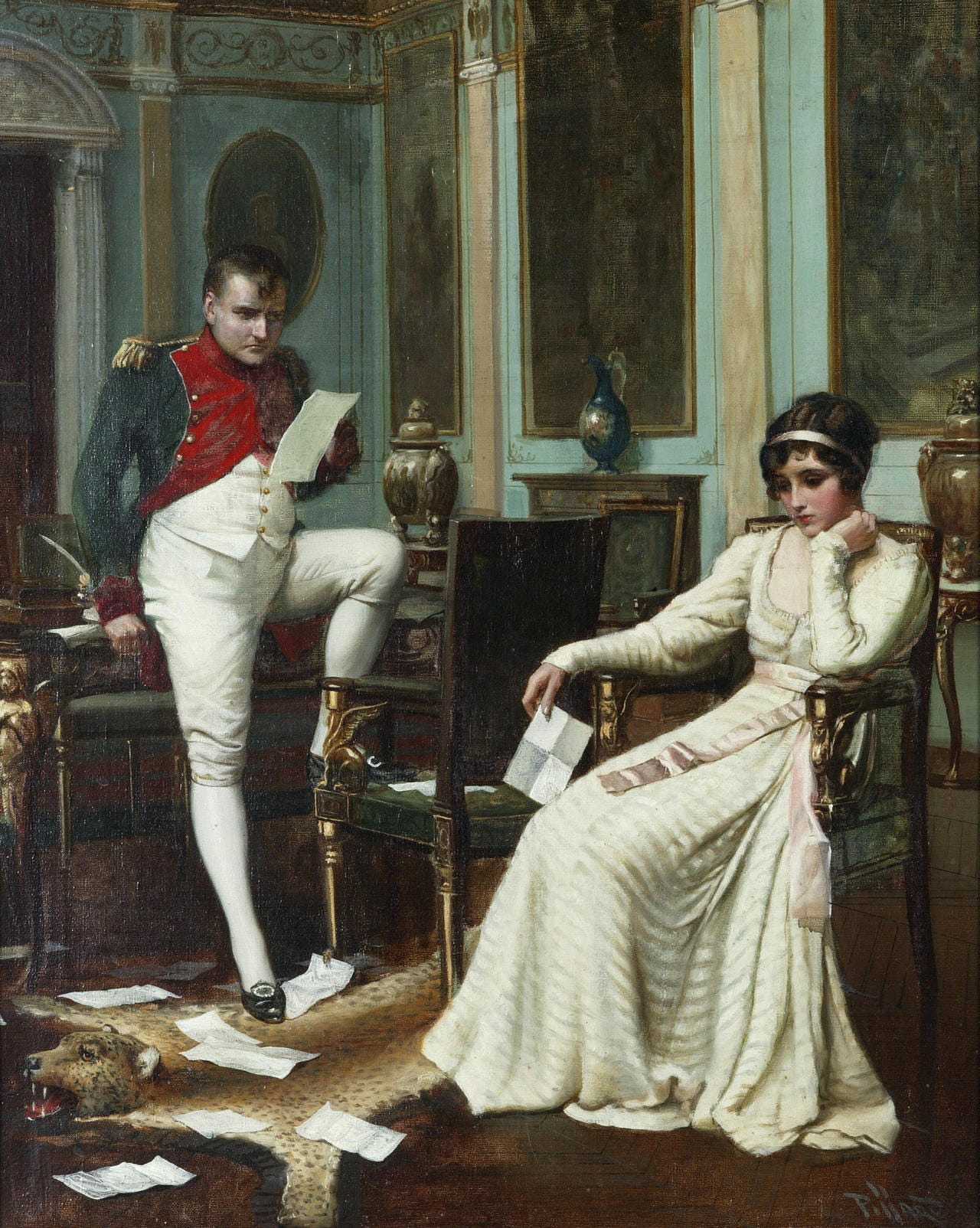Navarre, April 19th, 1810.
Sire,
I receive by my son the assurance that your Majesty consents to my return to Malmaison, and grants to me the advances that I asked for in order to make the château of Navarre habitable.
This double favor, Sire, dispels to a great extent the concerns and even the fears which your Majesty's long silence had inspired within me. I was afraid that I might be entirely banished from your memory; I see that I am not. I am therefore less unhappy today and even as happy as it is henceforth possible for me to be.
I will go at the end of the month to Malmaison, since your Majesty sees no objection to it. But I ought to tell you, Sire, that I should not so soon have taken advantage of the liberty which your Majesty leaves me in this respect had the house of Navarre not required, for my health's sake and for that of my household, repairs which are urgent.
My project is to remain at Malmaison a very short time; I will soon leave it in order to go to the waters. But while I am at Malmaison, your Majesty may be sure that I will live there as if I were a thousand leagues from Paris. I made a great sacrifice, Sire, and every day I realize more its full extent. Yet that sacrifice will be as it ought to be, a complete one on my part. Your Majesty, amid your happiness, will be troubled by no expression of my regrets.
I will pray unceasingly for Your Majesty's happiness. Perhaps even I shall pray to see Him again; but Your Majesty may be convinced that I shall always respect his new situation; I will respect it in silence; trusting the sentiments which were held towards me formerly, I will call for no new proof; I will await everything from his justice and his heart.
I confine myself to asking him for one favor, it is that he will deign to find himself a way of sometimes convincing, and myself, and my entourage that I still have a small place in his memory and a great place in his esteem and friendship. This means whatever it may be, will alleviate my sorrows, without, as it seems to me, compromising, that which is of utmost importance to me, the happiness of Your Majesty.
Joséphine.
Compiègne, April 21st, 1810.
My friend1,
I receive your letter from April 19th ; it written in a bad style. I remain the same ; those like me never change. I do not know what Eugene has told you. I have not written you, because you have not done so, and I have desired everything that can be pleasant for you. I regard with pleasure that you may go to Malmaison, and that you may be content; but, I will also be by receiving news from you, and by giving you mine. I do not say more until you compare this letter to yours; and, after that, I let you judge who is the better and more friend between you and I.
Farewell, my friend, be well, and be just for you and me.
Napoléon.
A thousand, thousand tender thanks for not having forgotten me. My son has just brought me your letter. With what eagerness I read it! And yet I took a long time over it, for there was not a word which did not make me weep; but these tears were so sweet! I have found my whole heart again, such as it will always be; there are sentiments which are life itself, and which can only end with it. I was in despair to find my letter of the 19th had displeased you; I do not remember the exact expressions, but I know the terrible feeling which had dictated it: it was grief at having no news from you.
I had written you on my departure from Malmaison; and, since then, how often have I wished to write you! But I sensed the causes of your silence, and feared to be importunate with a letter. Yours has been a true balm for me. Be happy, be as much so as you deserve; it is my whole heart which speaks to you. You have also just given me my share of happiness, and a share so vividly felt. Nothing for me can be worth a mark of your memory.
Farewell, my friend; I thank you as tenderly as I shall always love you.
Joséphine.
Compiègne, April 26th, 1810.
My friend, I receive two letters from you. I write to Eugène. I have ordered that Tascher be married to the Princess de La Layen. I will go to Anvers tomorrow to see my fleet and order works. I will be back on May 15th. Eugène told me you wish to go to the waters ; do not bother yourself about anything. Do not listen to the chatter of Paris: they are worthless and very far from knowing the true state of things. My feelings for you do not change, and I desire very much to know you happy and content.
Napoléon.
“Mon amie”





